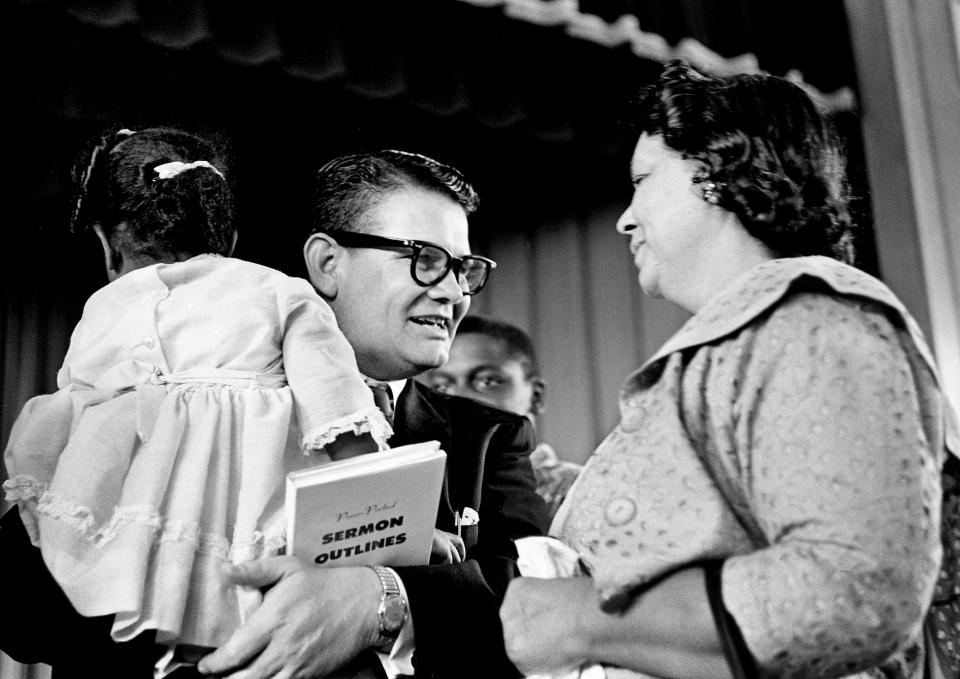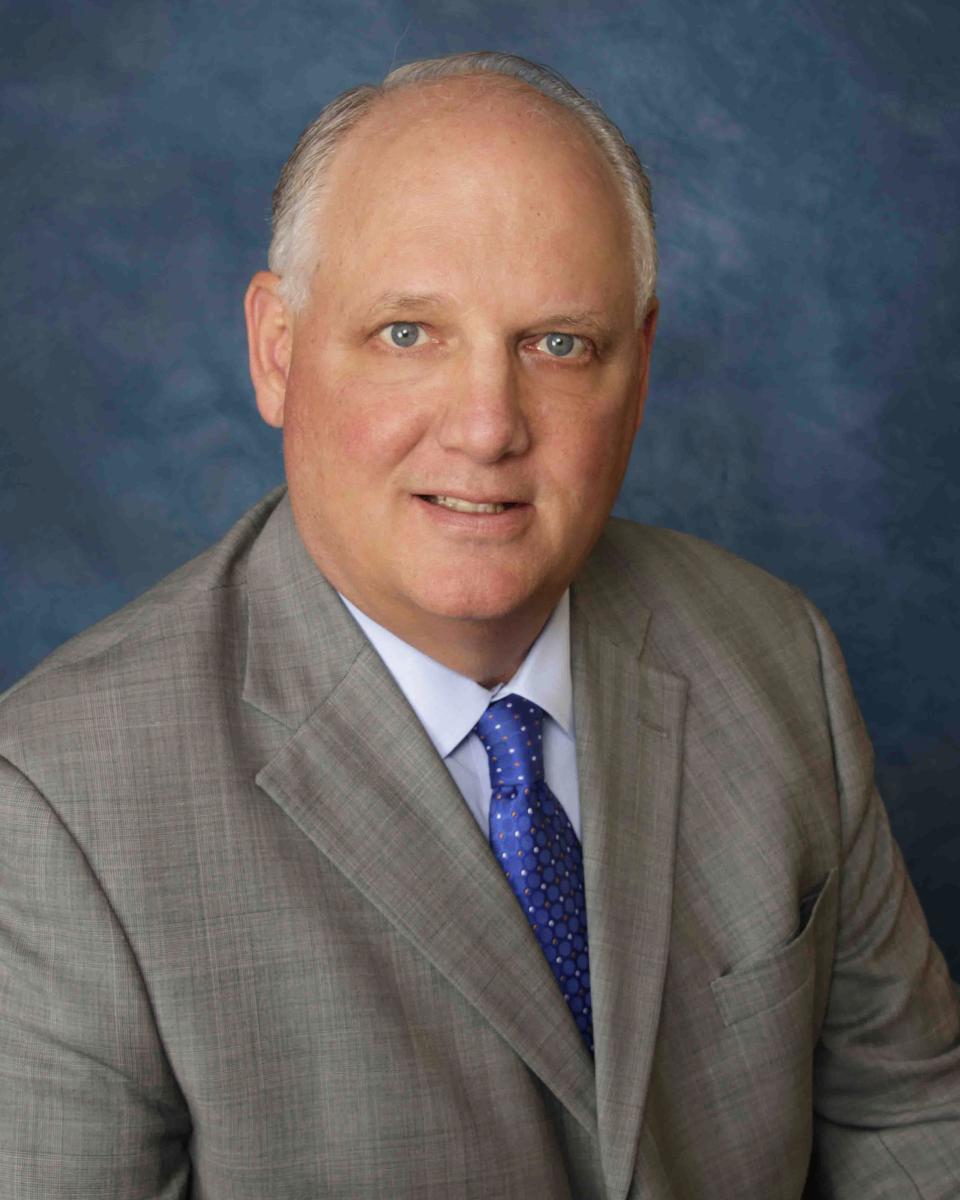Caprock Chronicles: Billie Sol Estes, the West Texas’ Bible-thumping swindler Part One
- Oops!Something went wrong.Please try again later.
Editor’s Note: Jack Becker is the editor of Caprock Chronicles and Librarian Emeritus, TTU Libraries. He can be reached at jack.becker@ttu.edu. Today’s article about Billie Sol Estes is the first of a two-part series by frequent contributor Chuck Lanehart, Lubbock attorney and award-winning Western history writer.
He was one of the most interesting characters of 20th Century Texas. A Bible-thumping swindler who befriended the rich and powerful, preyed on the gullible and provided scandalous fodder for the press and public, the man thought of himself as a modern-day Robin Hood.
Billie Sol Estes was born during a blizzard on a farm in the Panhandle of Texas near Alanreed, Gray County, on January 10, 1925. His parents soon moved near Clyde, Callahan County, where the boy was raised.
The family was poor, and during the Great Depression, his mother traded her churned butter for other food and supplies to help feed the family. They were respected as hard-working people, faithful and active members of the Church of Christ. His mother drilled him in church teaching, explaining that the boy was born with a destiny, and Billie Sol understood he needed to be successful. In his two-room school, he excelled at math.
His father granted him permission to pay his siblings to perform his farm chores so he could oversee his own business affairs. From then on, Billie Sol—just a boy—was his own man.

At age seven, Billie Sol (pronounced "soul") was given a lamb—named Merry—for Christmas, and year-by-year the boy increased his livestock holdings. By age 15, he owned more than 100 sheep, and before he reached age 20, he owned more than 100 Hereford cattle and some hogs. He sold the wool, most of the sheep and cattle for $3,000 and bought 400 sows and feeder pigs. Billie Sol estimated he made $38,000 from Merry, his lamb.
In 1940, he wrote President Franklin Roosevelt, asking if the government could help the drought-stricken farmers of Callahan County. Roosevelt’s quick response informed Billie Sol there was cheap government surplus grain for
sale. The boy borrowed $3500 from a friendly banker, bought 17 boxcars of grain, sold it as livestock feed to his neighbors and made a huge profit.
But his success was tinged with a bit of chicanery. Billie Sol once sold a cow to a neighbor and promised it would produce four gallons of milk. Soon, the neighbor complained when the cow did not produce as promised. The boy said he had not guaranteed how long it would take the cow to deliver the four gallons.
It was not the last time Billie Sol was accused of chicanery—or worse.
During World War II, Billie Sol served in the Merchant Marines. After the war, he sold war surplus materials and converted barracks into housing.

In 1951, he moved to Pecos, bought land and farmed cotton, acquired mineral rights, sold farm equipment, built grain elevators and invested in real estate, construction, trucking, a newspaper and a mortuary.
Billie Sol was known as a financial boy genius and held up as a shining example to members of the 4-H Clubs of America, the darling of the Junior Chamber of Commerce. Upon being named one of the national Jaycee’s Outstanding Young Men of 1953, he said to be successful, “you have to walk out on a limb to the far end, for that's where the fruit is. If it breaks, you learn how far to go next time."
Within ten years, he employed 4,000 people and was worth $40 million. “Everything I touched made money,” said the young entrepreneur. The Estes family lived in the largest house in Pecos, which occupied an entire city block, featuring a 7000-square-foot mansion with two tennis courts, imported palm trees and a grill large enough to barbeque two steers at a time.
Billie Sol did not smoke or drink, and he considered dancing immoral. As a Church of Christ lay preacher, he delivered many stirring sermons. Boys and girls were not allowed to swim together in his family mansion’s pool, according to church doctrine.
A staunch Democrat, he contributed heavily to many powerful politicians on his rise to infamy. He claimed to personally know President John F. Kennedy and Texas Senators Lyndon Johnson and Ralph Yarborough.
Meanwhile, behind the scenes, he engaged in shady enterprises involving liquid fertilizer, storage tanks, grain elevators, cotton crops, illegally borrowed money, secret payments to farmers and thousands of sham mortgages. Billie Sol used government agriculture programs to promote the schemes, with clandestine lease-back arrangements, phony mortgages on nonexistent fertilizer tanks, kickbacks and bribes. Many of those defrauded were Panhandle farmers.
A bitter competition between the Pecos Daily News—Billie Sol’s newspaper—and the rival Pecos Independent contributed to his downfall. In 1962, the Independent published a Pulitzer Prize-winning exposé of the local tycoon’s nefarious dealings, which led to multiple investigations, and Billie Sol was arrested on state and federal charges in connection with fraud in Texas, Oklahoma, Georgia and Alabama. The case resulted in the resignation or firing of four Kennedy Administration officials, and the U.S. Department of Agriculture came under investigation.
Part 2 of this series will be published in next Sunday’s Lubbock Avalanche-Journal.
This article originally appeared on Lubbock Avalanche-Journal: Caprock Chronicles: Billie Sol Estes, the West Texas’ Bible-thumping swindler

